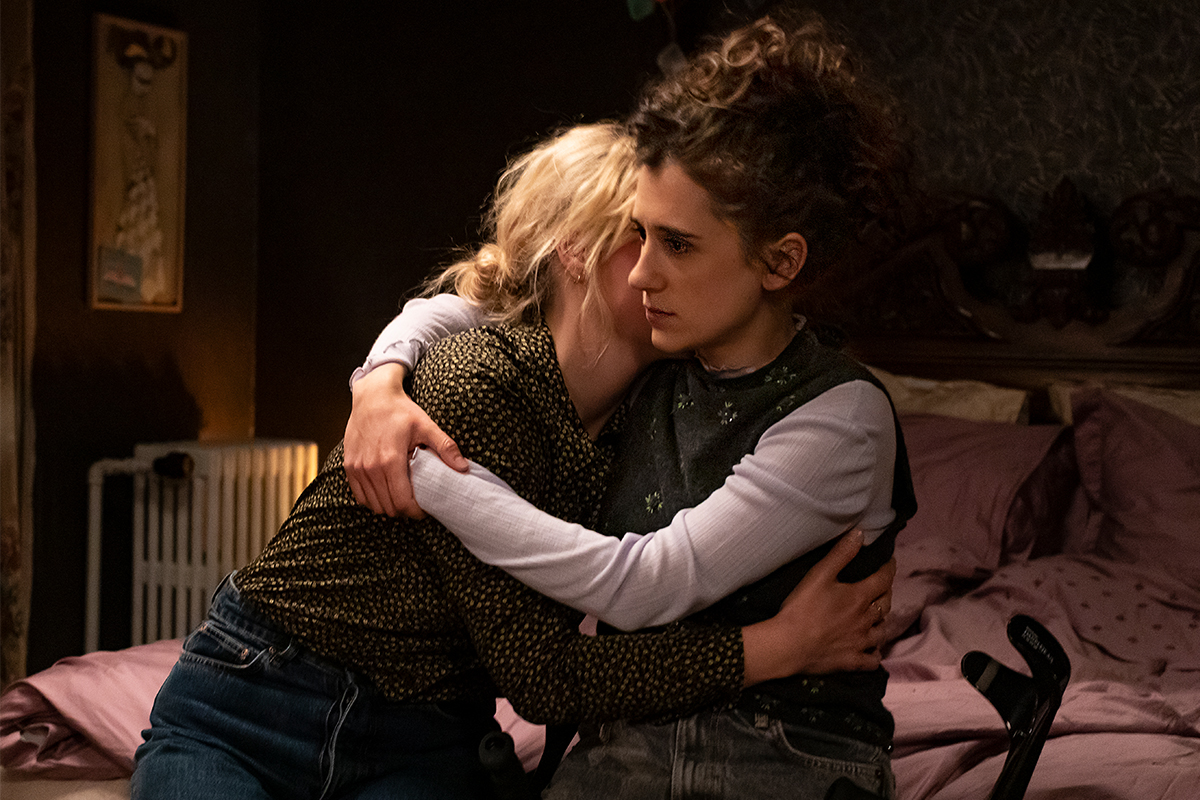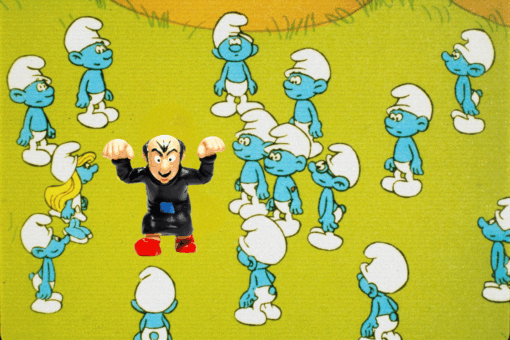Light spoilers ahead for “Attachment.”
Finding your mother-in-law annoying is a tired trope drenched in misogyny. Finding your Jewish mother annoying, though also a trope, has the potential to reflect deeper familial nuances. Still, stereotypical Jewish mothers often pop up on our screens, with no other purpose than to nag at burdened protagonists.
In “Attachment,” a new queer horror film from Jewish Danish breakout Gabriel Bier Gislason playing at the Tribeca Festival, both tropes get spun on their heads and come back speaking Yiddish and devouring souls. What if your Jewish mother-in-law’s nagging were the only thing that could save your life?
When Maja (Josephine Park), a former child actor searching for stability after the death of her parents, begins a whirlwind romance with Leah (Ellie Kendrick), a Jewish grad student in Denmark for research, neither thinks it will last beyond the few days before Leah’s flight home. But when Leah has a seizure and snaps her leg, Maja accompanies her back to London, where she can convalesce under the watchful eye of her mother, Chana (Sofie Gräbøl), in their Haredi neighborhood. Maja grows to suspect Chana of something sinister as her attempts to nurse Leah back to health grow ever more controlling, isolating Maja and pushing her into the arms of Leah’s uncle Lev (David Dencik). The more time that Maja spends learning about Jewish mysticism and ritual in Lev’s bookstore, the more she fears the role that kabbalah may play in Leah and Chana’s home.
Gislason’s initial impulse to frame the story through the eyes of an outsider came from his friendship with Park and his desire to write her a starring role; after Park told him of an ex’s mother’s outlandish behavior, he realized he could combine this romcom-gone-wrong conceit with the trappings of a Jewish horror movie.
The stereotypical Jewish mother is, in many ways, the perfect horror villain: She is always watching you, always there when you least expect her, checking up on your every move and inserting herself into every decision you make. “Jewish mothers tend to treat everything as though it’s life or death in some way or another,” Gislason told me last week ahead of the film’s premiere at Tribeca. There’s no better vehicle for Chana than a horror movie, where everything is life or death.
The life versus death struggle in “Attachment” takes many turns as Maja and the audience explore different paths of Jewish mysticism to get to the heart of Leah and Chana’s relationship. Has Chana built a golem to protect Leah, one that may see Maja as an adversary? Is the family affected by an old world curse that has seeped through the walls of their Stamford Hill home, alienating them from their neighbors in Orthodox London?
Gislason was ultimately drawn to the image of the dybbuk for a multitude of reasons: its versatility in storytelling, its importance in the history of Jewish literature and pop culture — everyone from S. Ansky to Leonard Bernstein to the Coen Brothers has a take on the Jewish spirit of the dead — and its relation to horror movie iconography. While exorcisms of Christian demons are a dime a dozen in the horror landscape, getting rid of a dybbuk is less common and presents different challenges for characters and filmmakers alike.
“One of the things I feel like Christians have always had the benefit of is that they can kind of pick and choose in their mythology, bend the dogma and the liturgy as much as they need,” Gislason says of your typical exorcist horror movie featuring priests, holy water and the power of Christ compelling someone. When you make a Jewish film that isn’t a straightforward comedy or drama, “there’s always this burden of fidelity or accuracy — we have to teach people about what our community is. I wanted to do something more irreverent. This part of our mythology is really fun. Does it totally work with the reality of our world? No, but who gives a shit, because I’m gonna take the liberties that so many other people get to take.”
Gislason describes the dybbuk in Tony Kushner’s acclaimed retelling of Ansky’s play as a “nebbishy little shit,” and the dybbuk in “Attachment” is just as frustrating a character. Kendrick embodies multiple personalities as the possessed Leah, sometimes lashing out in violence against others or her host body and often too headstrong for her own good. Leah is trapped by her inability to confront her mother or stray from London for too long; her dybbuk is trapped of its own volition, refusing to abandon her out of sheer stubbornness. Maja doesn’t have to understand kabbalah to know that the relationship between Leah and Chana is treasured even when they butt heads. Their story is juxtaposed with the loss of Maja’s own mother and her seeming inability to let go of her childhood.
But “Attachment” doesn’t disparage Jewish mothers, even as its Danish title, “Natten har øjne” or “The Night Has Eyes,” implies further surveillance on the part of Chana. The film may be an ode to Gislason’s own Jewish mother, filmmaker Susanne Bier, who is as much of a mentor to her son in cinema as in life, having directed a variety of independent films and miniseries as well as the 2018 horror “Bird Box.”
Chana does ignore boundaries and insert herself into her daughter’s love life, but her cruelty to Maja comes not because she is reluctant to accept Leah’s sexuality, as the trope might lead us to expect, but because she fears what may happen if she relinquishes control of her daughter. While Leah and Maja’s romance takes center stage in “Attachment,” it’s “also a maternal love story” for Gislason. “The tricky thing about loving people is that there’s always baggage, you have to carry a lot of their shit. Whether or not something bad will ever happen again is beside the point. In choosing to love this person, [you] choose to live with fear and risk.”
The choices that the three women make throughout the film engender a deep sense of mistrust that becomes a triangle of miscommunication. In one moment that will make any Jewish viewer seize with dread, Maja removes a small scroll containing the names of God from a hole in the wall, not trusting that Chana is capable of safeguarding her daughter. In the end, the trust between the love interests may not be fully restored, but this doesn’t negate their journey. Their resilience in the face of death solidifies “Attachment” in the long line of Jewish horror literature and cinema — a line that Gislason hopes to keep growing.
“Attachment” is playing the 2022 Tribeca Festival, and is available to stream in the U.S. through Tribeca at Home until June 26th, 2022.



